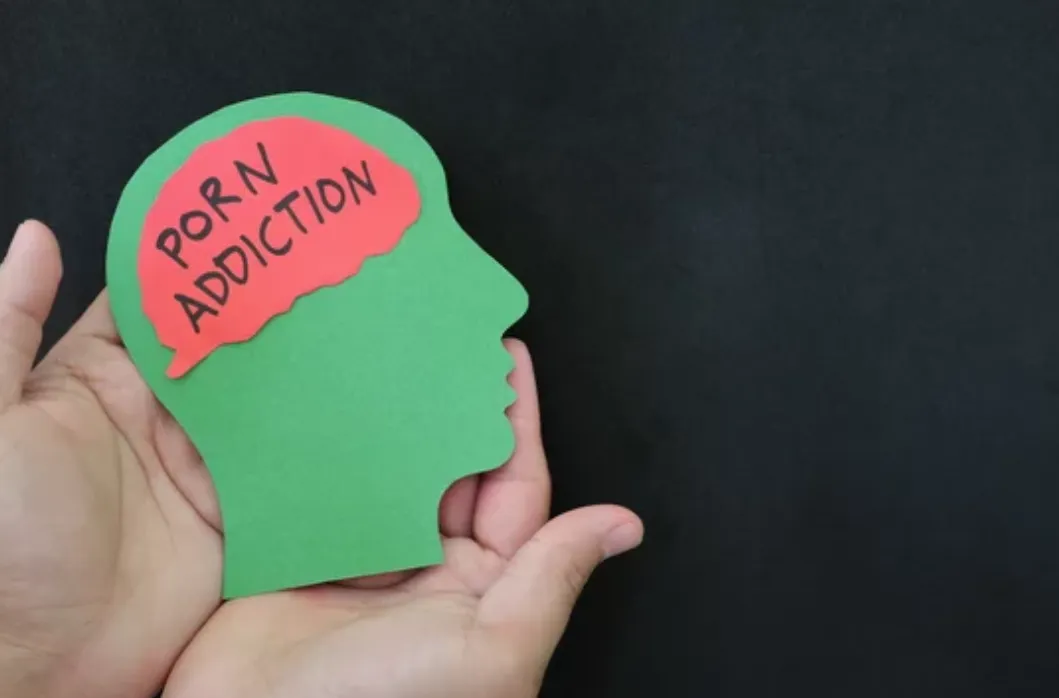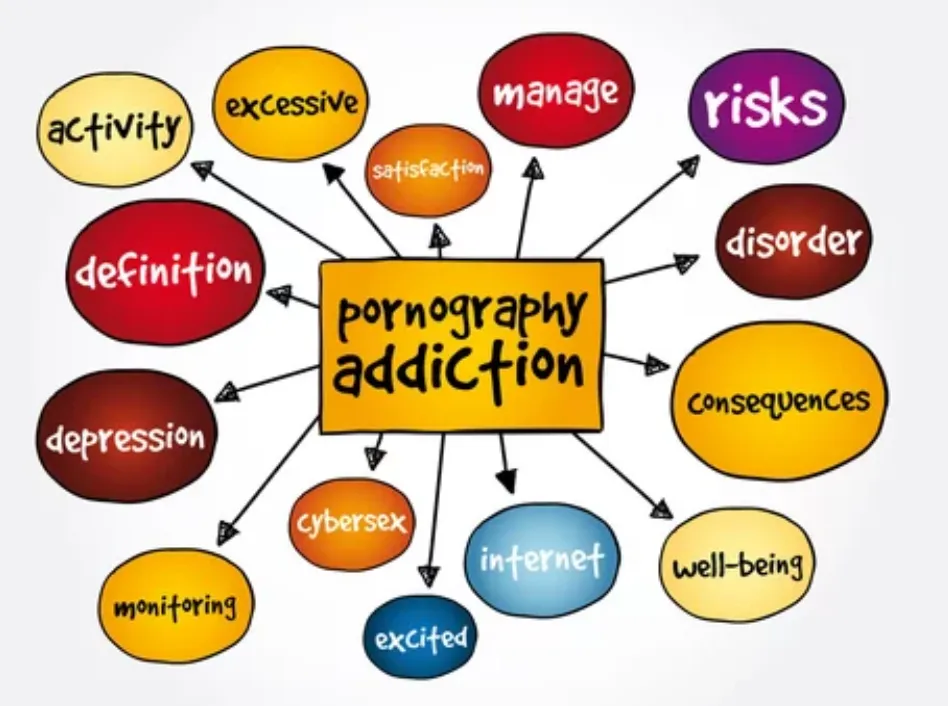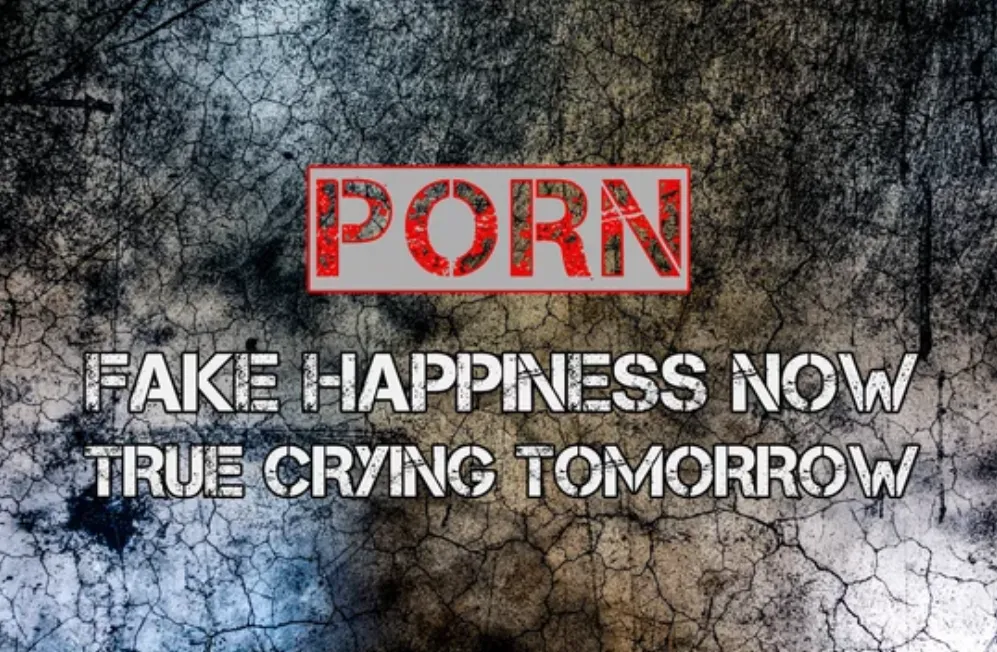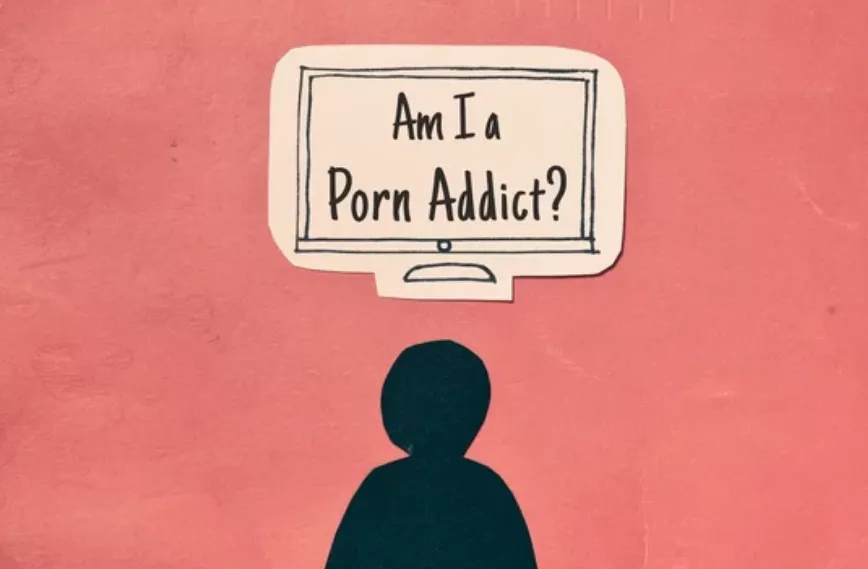Call Us On (877)-585-0677 To Speak To An Expert Today!
What Is PMO Addiction and How To Overcome
PMO stands for Pornography, Masturbation, and Orgasm (PMO). PMO often starts as a seemingly harmless escape and reward, and sometimes evolves into a shameful, secret, addiction.
When they become compulsive and excessive, they can lead to what is commonly referred to as a PMO addiction.
In this article, we’ll explore the intricacies of PMO addiction and it’s impact, particularly on men.
Let’s get started on this journey towards understanding and recovering from PMO addiction. Together, we can break free from the chains of addiction and move towards a healthier, more mindful way of living.
What is PMO Addiction?
Definition of PMO and Its Components
PMO stands for Pornography, Masturbation, and Orgasm. When these elements come together in a compulsive cycle, they can create what’s called PMO addiction.
It occurs when an individual repeatedly engages in PMO in a way that becomes uncontrollable. PMO is harmful when it starts to interfere with a person’s daily life, relationships, and overall well-being. It’s often done in secret and this can add to the shame.
Transition from Recreational Activity to Addictive Behavior
Let’s break down how PMO can shift from what appears to be a safe coping strategy to an addictive behavior that destroys lives. Men are programmed since childhood that watching pornography and masturbating is a form of stress relief or a way to unwind. They’re told “all boys/guys do it” and it’s no big deal.
These behaviors trigger the release of dopamine, a neurotransmitter associated with pleasure and reward, in the brain. This dopamine release creates a feeling of euphoria and satisfaction. On one had it is a powerful numbing, coping and escaping strategy.
Over time, however, the brain can start to crave these dopamine hits more frequently. What begins as an occasional indulgence can gradually become a daily habit to escape discomfort.
As the frequency increases, so does the intensity of the behavior. You might find yourself needing more explicit content or longer sessions to achieve the same level of satisfaction, a phenomenon known as tolerance.
Eventually, the behavior can spiral out of control, taking precedence over other important aspects of life, such as work, relationships, and personal health. This is when PMO is an addiction or a terribly unhealthy coping strategy.
The Science Behind PMO Addiction

When it comes to understanding PMO addiction, it's crucial to grasp how these behaviors affect the brain on a neurochemical level.
PMO triggers a cascade of neurochemical changes that can significantly impact behavior, emotions, and overall mental health. It is a very powerful coping strategy.
Dopamine, the Pleasure Neurotransmitter
At the core of PMO addiction lies dopamine, often referred to as the "pleasure neurotransmitter." Dopamine is released in the brain when we experience pleasure, reinforcing behaviors that lead to that pleasure.
When you engage in PMO activities, such as watching pornography or masturbating, your brain releases a surge of dopamine, creating feelings of pleasure and reward.
The Cycle of Dopamine Release and Reward
Initially, this dopamine release can feel exhilarating and satisfying. However, with repeated exposure to PMO, the brain's reward system can become dysregulated.
The brain adapts to the excessive dopamine by downregulating dopamine receptors, making it less responsive to natural rewards like social interaction or physical activity.
This phenomenon contributes to tolerance, where you need increasing amounts of PMO to achieve the same level of pleasure.
Impact on Behavior and Emotions
As It progresses, its effects extend beyond mere pleasure-seeking behavior. The constant pursuit of dopamine highs can lead to compulsive and impulsive behaviors, where you feel driven to seek out PMO regardless of the consequences.
This can manifest as spending excessive amounts of time watching pornography, engaging in risky sexual behavior, sex addiction, or neglecting responsibilities and relationships.
Furthermore, PMO addiction can have profound emotional effects. The highs and lows of dopamine fluctuations can lead to mood swings, anxiety, and depression.
You may find yourself caught in a cycle of shame and guilt, further fueling the addiction as you turn to PMO to escape negative emotions.
Rewiring the Brain
Over time, chronic PMO addiction can lead to structural changes in the brain, altering neural pathways and reinforcing addictive patterns.
The brain becomes wired to prioritize PMO over other activities, making it increasingly difficult to break free from the addiction. It becomes a vicious cycle because “what wires together fires together.”
In summary, It is not just a matter of willpower or self-control—it's a complex interplay of neurochemical changes that hijack the brain's reward system.
Understanding these mechanisms is essential for developing effective strategies to overcome PMO addiction, which we'll explore in the subsequent sections.
Stay tuned as we delve deeper into the journey of recovery from PMO addiction and reclaiming control over your mind and life.
Identifying PMO Addiction

Identifying PMO addiction requires a keen awareness of the various symptoms and signs that may indicate a problematic relationship with Pornography, Masturbation, and Orgasm.
Let's explore these indicators in more detail:
Emotional and Psychological Symptoms
Guilt and Shame: Feelings of guilt and shame are common emotional responses to PMO addiction. You may experience guilt over the secrecy of your behavior or shame about the content you're consuming and how much time you’re wasting.
Anxiety and Depression: It can exacerbate feelings of anxiety and depression. The constant pursuit of pleasure and the subsequent crashes in dopamine levels can lead to mood swings and emotional instability.
Lack of Self-Esteem: Chronic PMO addiction can erode your sense of self-worth and confidence. You may feel unworthy of love and connection, leading to further isolation and withdrawal.
Physical Symptoms
Fatigue: Excessive PMO can disrupt your sleep patterns, leading to fatigue and daytime drowsiness. You may find yourself struggling to concentrate or lacking the energy to engage in daily activities.
Insomnia: On the flip side, It can also disrupt your ability to fall asleep or stay asleep. Late-night PMO sessions may become a regular occurrence, further exacerbating sleep disturbances.
Social and Relational Impacts
Isolation: PMO often leads to social withdrawal and isolation. You may prefer the company of online content over real-life interactions, leading to feelings of loneliness and alienation.
Relationship Conflicts: It can strain relationships with partners, family, and friends. Secrecy, dishonesty, and neglect may breed resentment and mistrust, leading to conflicts and breakdowns in communication. This is often compounded by Spouse Betrayal Trauma, which can deeply affect the emotional and psychological well-being of your partner.
Recognizing these symptoms and signs is the first step toward addressing PMO addiction. If you resonate with any of these indicators, know that you're not alone, and help is available.
The Impact of PMO Addiction

PMO addiction can have profound and far-reaching effects on various aspects of your life, from your mental and physical health to your relationships and social interactions.
Let's delve into the specific ways in which PMO addiction can impact you:
Short-term and Long-term Effects on Mental Health
Short-term: In the short term, the shame, secrecy, and low self-esteem that comes with PMO, can lead to mood swings, anxiety, and depression. The constant pursuit of pleasure followed by feelings of guilt and shame can create emotional turmoil and instability perpetuating a vicious cycle - that doesn’t stop until rock bottom. Rock bottom means different things to different people, however, it’s best to get help before you sink lower.
Long-term: Over time, It can exacerbate existing mental health conditions and contribute to the development of new ones. Chronic exposure to explicit content can desensitize your brain's reward system, making it harder to experience pleasure from natural stimuli. This can lead to anhedonia, or the inability to feel joy, and a deepening sense of emptiness and despair.
Physical Health Consequences
Sleep Disturbances: It can disrupt your sleep patterns, leading to insomnia and sleep deprivation. Poor sleep quality can weaken your immune system, impair cognitive function, and increase the risk of physical health problems.
Fatigue and Low Energy: Excessive PMO can drain your energy levels, leaving you feeling lethargic and unmotivated. Physical fatigue can further exacerbate mental health issues and impair your ability to function optimally in daily life.
Impact on Relationships and Social Life
Intimacy Issues: It can create barriers to intimacy and connection in romantic relationships. Excessive PMO can lead to erectile dysfunction, reduced libido, and an inability to experience genuine intimacy with a partner.
Isolation and Withdrawal: It often leads to social withdrawal and isolation. You may prioritize PMO over spending time with friends and family, leading to feelings of loneliness and disconnection.
Breakdown in Communication: Secrets and lies associated with PMO addiction can erode trust and communication in relationships. Partners may feel betrayed and resentful, leading to conflicts and breakdowns in the relationship.
Recognizing the impact of PMO addiction on your mental and physical well-being is essential for taking proactive steps towards recovery.
As Napoleon Hill says in the legendary book Think & Grow Rich,, “A river may be dammed, and its water controlled for a time, but eventually it will force an outlet. The same is true of the emotion of sex. If it is not transmuted into some creative effort, it will find a less positive, less productive outlet.”
Risk Factors and Vulnerabilities

Understanding the risk factors and vulnerabilities associated with It is crucial for recognizing potential triggers and addressing underlying issues.
Let's explore some common factors that can contribute to the development of PMO addiction:
1. Genetic Predisposition
Some individuals may have a genetic predisposition to addictive behaviors, including PMO addiction.
Certain genetic variations can affect dopamine receptors and neurotransmitter pathways in the brain, making some individuals more susceptible to addictive tendencies.
2. Mental Health Conditions
Mental health conditions such as depression, anxiety, and trauma can increase the risk of PMO. PMO may serve as a coping mechanism for managing emotional distress or numbing painful feelings.
Individuals with untreated mental health issues may turn to PMO as a form of self-medication, further exacerbating their symptoms.
3. Environmental Factors
Environmental factors play a significant role in shaping addictive behaviors, including PMO addiction.
High levels of stress, pressure, and isolation can create fertile ground for the development of addictive patterns. Stressful life events, such as job loss, relationship conflicts, or financial difficulties, can trigger or exacerbate PMO addiction.
4. Situational Vulnerabilities
Situational vulnerabilities refer to specific circumstances or triggers that increase the likelihood of engaging in PMO addiction. These may include periods of boredom, loneliness, or easy access to online content.
Situational vulnerabilities can vary from person to person and may change over time based on life circumstances.
Mindful Habit Founder, Craig Perra, states, “the simple truth is that men are not wired for the stimulation that exists within our phones. We must create a healthy relationship with technology.”
Recognizing these risk factors and vulnerabilities is the first step toward understanding the root cause of PMO addiction. By identifying potential triggers and addressing underlying issues, individuals can take proactive steps towards recovery and healing.
In the next section, we'll explore effective strategies for PMO addiction recoveries and reclaiming control over your life. Stay tuned for actionable insights and empowering solutions.
Strategies for Overcoming PMO Addiction

PMO addiction recovery requires a multifaceted approach that addresses both the underlying causes of the addiction and the behavioral patterns that sustain it.
Here are some effective strategies to help you break free from the grip of It:
Self-Help Strategies:
1. Setting Realistic Goals: Begin by setting achievable goals for reducing PMO use. Start with small, manageable steps and gradually work towards reducing the frequency and duration of PMO sessions.
2. Developing Healthy Habits: Focus on building healthy habits and engaging in alternative activities that promote well-being. Exercise, hobbies, and creative pursuits can provide a healthy outlet for stress and boredom, reducing the urge to turn to PMO.
3. Mindfulness and Stress Reduction: Practice mindfulness techniques such as meditation, deep breathing, or yoga to cultivate awareness of your thoughts and emotions. Some of these practices are part of the Mindful Habit Help Program, can help you manage stress more effectively and reduce the urge to engage in PMO as a coping mechanism.
Professional Treatment Options:
1. Therapy: Seek out therapy from a qualified mental health professional who specializes in porn addiction treatment. Cognitive-behavioral therapy (CBT) and counseling can help you identify and challenge negative thought patterns and develop healthier coping strategies. If you are looking for one on one support with a counselor, click here to find a BetterHelp therapist licensed in your state.
Mindful Habit Recovery is the highest ranked and rated Porn Addiction Treatment Center in the World based upon public and verified testimonials. Click here to read what actual clients had to say about Craig & Michelle’s dynamic programs.
2. Support Groups: Joining a support group, such as a 12-step program or online community, helps some people and harms others. Find a group that is not obsessed with rehashing the symptoms of PMO addiction but instead focuses on treating the root cause like the Mindful Habit Group Coaching Intensive. Sharing your experiences with others who understand can help you feel less alone in your recovery journey.
3. Medical Interventions: If underlying mental health conditions are contributing to your PMO addiction, consider seeking medical intervention. Medications prescribed by a healthcare provider can help manage symptoms of depression, anxiety, or other mental health issues. One medication that Craig Perra, the Founder of Mindful Habit Recovery, found to be helpful for clients is naltrexone. It’s often well-tolerated and has been around for a long time and might help a lot with responding to triggers. It especially helps clients seriously struggling with the obsessive compulsive version of PMO addiction.
Lifestyle Changes:
1. Building a Supportive Social Network: Surround yourself with supportive friends and family members who understand your struggles and can offer encouragement and support. Building a strong social network, as emphasized by Craig Perra, can help you feel connected and motivated to stay on track with your recovery. “The opposite of addiction isn’t sobriety, it’s connection.” Johann Hari.
2. Improving Sleep and Nutrition: Prioritize sleep, nutrition, and overall self-care as essential components of your recovery plan. Adequate sleep and a balanced diet can help regulate mood, energy levels, and overall well-being. Don’t overlook self-care and don’t expect success without it.
3. Setting Boundaries and Managing Triggers: Identify triggers and situations that increase the likelihood of PMO cravings, and develop strategies for managing them. Setting boundaries around technology use, creating a PMO-free environment, and practicing self-discipline can help you resist temptations and stay focused on your recovery goals.
Remember, PMO addiction recovery is a journey, and progress may not always be linear. Be patient with yourself, celebrate your successes, and seek support when needed.
With dedication, perseverance, and the right strategies in place, you can break free from It and reclaim control over your life.
Preventing Relapse

Preventing relapse is a crucial aspect of long-term recovery from PMO addiction. Understanding the nature of relapse and identifying common triggers can help you stay vigilant and maintain your progress.
Let's explore some effective strategies for preventing relapse:
Understanding the Nature of Relapse:
You will relapse. Secret PMO behaviors started in childhood. It takes a lot of work to break this powerful habit. Relapse is not a sign of failure but rather a common and natural part of the recovery process. It's essential to recognize that relapse can happen to anyone and does not diminish the progress you've made. “There is no such thing as square one,” Craig Perra says. “A slip does not void all the great work that you’ve done. You now have to use your failure as a powerful growth opportunity. It’s the only way to self-mastery.”
Relapse often occurs due to triggers—internal or external cues that prompt cravings and old patterns of behavior.
Strategies for Maintaining Progress and Preventing Relapse:
Continued Therapy and Support Group Participation: Stay connected with your coach or therapist and support group to maintain accountability and receive ongoing guidance and encouragement.
Regular sessions and group meetings can provide valuable insights, coping strategies, and support during challenging times.
Regular Self-Assessment and Reflection: Practice regular self-assessment and reflection to monitor your progress and identify potential warning signs of relapse. Pay attention to changes in mood, behavior, and thought patterns, and be honest with yourself about any struggles or challenges you're facing.
Establishing a Strong Support System: Surround yourself with a strong support system of friends, family, and peers who understand your journey and can offer encouragement and support when needed. Cultivate relationships with individuals who respect your boundaries and are committed to your recovery.
Resources and References
Books: "The Porn Trap" by Wendy Maltz and "Breaking the Cycle: Free Yourself from Sex Addiction, Porn Obsession, and Shame" by George Collins.
Websites: mindfulhabithelp.com, PornAddiction.com, YourBrainOnPorn.com, and NoFap.com.
Support Organizations: Mindful Habit Recovery Groups, Sex Addicts Anonymous (SAA), Sexaholics Anonymous (SA), and Porn Addicts Anonymous (PAA).
Scientific Studies and Articles: "Neurobiology of Compulsive Sexual Behavior: Emerging Science" by Valerie Voon et al. (2016) and "Compulsive Sexual Behavior Disorder in Adults" by Rory C. Reid et al. (2019).
Online Resources: The Mindful Habit® Workbook, Mindful Power® Training (Only $9 per month)
These resources provide valuable information, support, and guidance for individuals looking for PMO addiction recovery and lead fulfilling, healthy lives.
Remember, you're not alone in your journey, and help is always available. Stay committed to your recovery, and never hesitate to reach out for support when needed. Consider enrolling in a Professional Coaching Program or Self Study Program to receive personalized guidance and assistance throughout your recovery process.
Quick Links
Call Us To Schedule Your Appointment:
Copyright @ 2026. The Mindful Habit® System | All Rights Reserved


